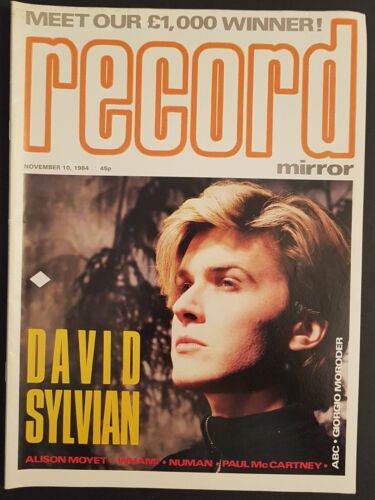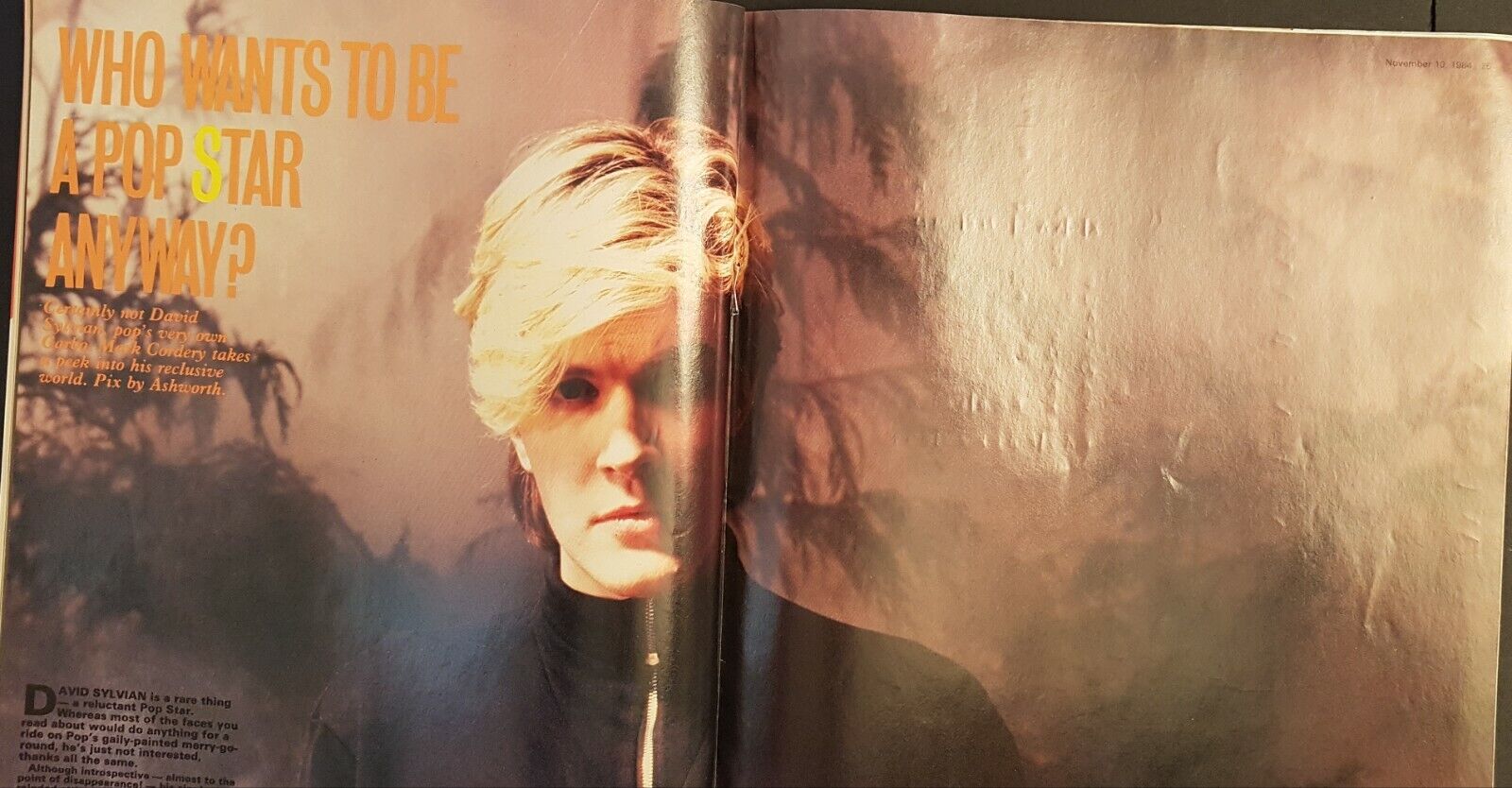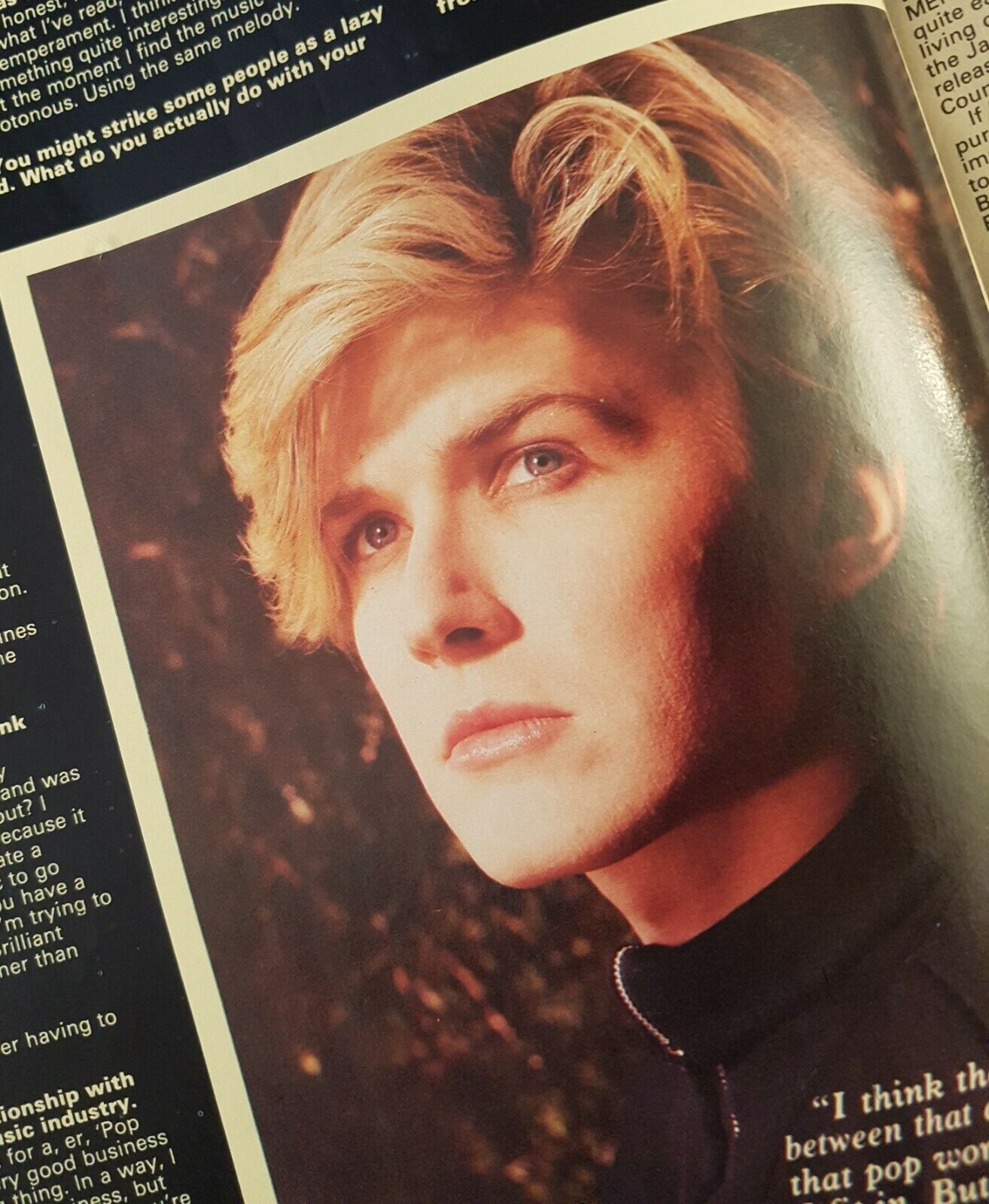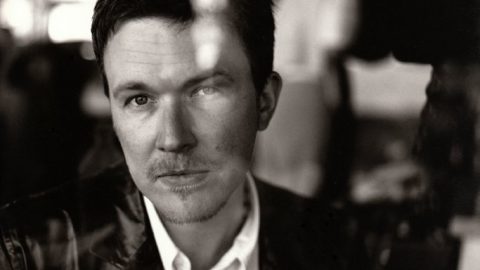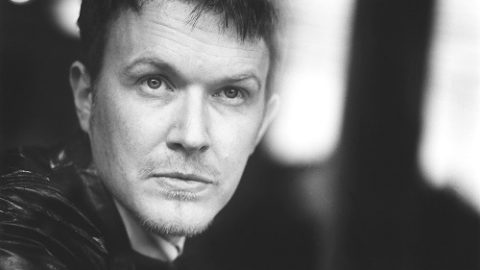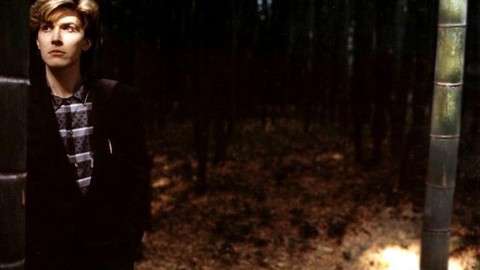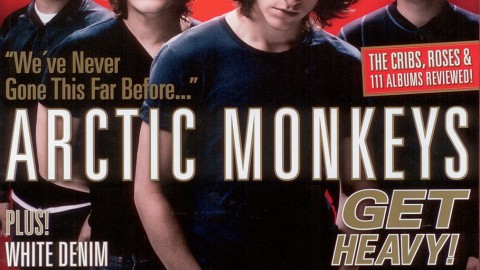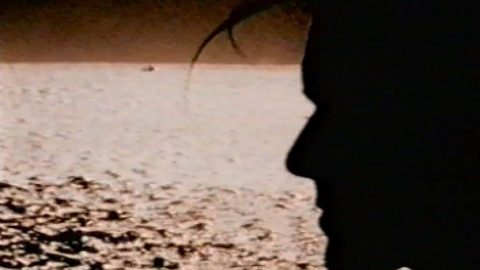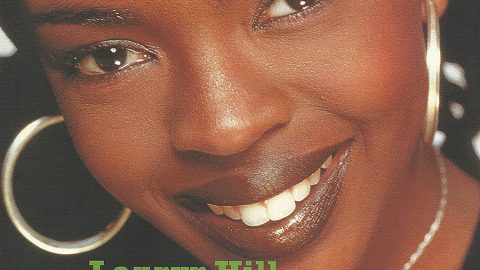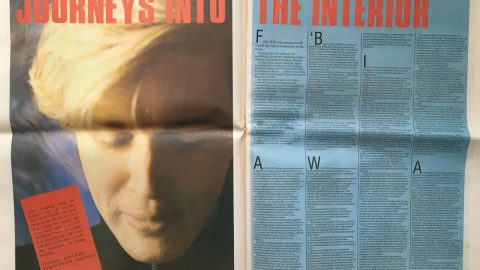Who wants to be a Pop star anyway?
Certainly not David Sylvian, pop’s very own Garbo. Mark Cordery takes a peek into his reclusive world.
Published in Record Mirror, 10 November 1984.
David Sylvian is a rare thing – a reluctant Pop Star. Whereas most of the faces you read about would do anything for a ride on pop’s gaily-painted merry-go-round, he’s just not interested, thanks all the same.
Although introspective – almost to the point of disappearance! — his single-minded attitude hasn’t prevented public interest in him. He still has the power to haunt reporters from young women’s magazines who melt when he grins – which is more often than you might think – and those who follow his progress, from ‘Nightporter’ to ‘Ghosts to ‘Forbidden Colours’ and now to his new single ‘Pulling Punches’ (from ‘Brilliant Trees’).
I went to meet him on a video shoot, wondering if he’s surprised that anyone’s interested at all…
“No, I’m not really surprised….because I think that people do tend to spend a lot of time on their own, thinking. I think that happens more and more to young people, maybe more so than any other generation. And that’s why I think my work would appeal to a surprisingly young age at times.”
But what do you think of fans?
“Japan always appealed to different ages, it was never a group that appealed to a specific audience. It was never a fashionable group to like, at any point. So individuals just picked it up. I think at the very end it became kind of fashionable with young girls, that was the disappointing aspect of it, only on the touring side, because that’s when we came face-to-face with it.
“I’m generalising, because there are girls of that age who listen, and boys, or whatever. You know what I’m saying — I don’t want to offend those people. Those people who write me extremely Iong, long letters explaining to me what it is shouldn’t be saying!”
In answer to some of those correspondents, David says no, Japan will not reform, although he has been exorcising some ghosts and compiling a Japan retro.
When he was defying school regulations by dyeing his hair and wearing make-up all those years ago, and getting beaten-up in the playground and expelled for his pains, what attracted him to Pop? David Bowie and Roxy Music?
“I think that Bowie, at that age, is a sort escapist figure. You could lose yourself in his world, in his theatrics, or whatever. Roxy Music was a band that I would take far more seriously, musically. At the time I did. And Japan’s biggest influence, if you have to take an individual figure, was Brian Eno.
“But why do I find him appealing? I think it comes down to the fact that he’s exploring, not changing for the sake of change. I think it must have been Bowie that started that thing off, you know, the constant changing, the idea that every LP should be different. It should give something different in the way of value, of emotional experience.
“And I think that honesty is something that can be conveyed in music, as well as emotion. An honesty in trying to uncover something about yourself. There is something that shines in a piece of work, and that comes from the honesty of the artist.”
Does he understand that some think he’s precious?
“Somebody asked me… they said they thought my music was very dignified, and was ‘dignity’ something I thought a lot about? I found that quite offensive in a way, because it gives the impression that I try to create a dignified image, and dignified music to go with that image. But he said, ‘Do you have a very pleasant life-style, then?’ But I’m trying to explain that what I’m doing, like ‘Brilliant Trees’, expresses a discomfort rather than comfort.”
What’s your idea of luxury?
“To do the work I do without ever having to stand up in public.”
You have an uneasy relationship with the business end of the music industry.
“I don’t think it’s a good idea for a, er, ‘Pop Star’ if you like, to have a very good business mind. I think it’s a damaging thing. In a way, I mean, you should be aware of business, but just to keep it on one side so you know you’re not being cheated. There are a couple of people I’ve seen, who’re quite intelligent, but who use their intelligence in the business rather than in the music. They make formula music and use it to further themselves in business, and it’s the wrong way around. I find that very ugly in young people.”
You spend a lot of time in Japan. the group was called Japan, your girlfriend is Japanese (Yuka Fujii, photographer), and you were eating with chop-sticks on the ‘Tin Drum’ LP cover — do you speak the language?
“No. Only the odd words that help in conversation with Yuka. Pidgin English!”
Aha! This admission, and your somewhat flirtatious affair with Pop fuel those gruff, bluff types that have you figured as a dilettante…
“I think there’s an area in between that avant garde and that pop world where I think I fit in. But it’s such a broad area that don’t feel confined by it. I think that people, like Virgin Records, are not sure where I stand. They’re not sure where they can put me. They know I could sell a lot more records if I went along with them, doing TOTP, or whatever, and so therefore they feel a bit cheated by the fact that I don’t do it.
And the trouble with videos is that they tend to limit any images the song may suggest. Morrissey doesn’t like them either. I wondered if D Sylvian saw the Smith as a distant relative?
“To be honest, I don’t know much about him. From what I’ve read, he seems to have the right temperament. I think it could lead him to do something quite interesting. I like his Iyrics, but at the moment I find the music a bit too… monotonous. Using the same melody.”
You might strike some people as a lazy sod. What do you actually do with your time?
“I don’t have a set day – I don’t have a waking time, a sleeping time. It tends to vary every day, it’s not a regular thing, but most of it’s taken up with working in one way or another.
“I consider everything working, everything I do. If I’m relaxing reading, for me it’s working because I know I’m learning from what I’m reading. Or even if it’s going to the cinema, I’ll make sure it’s probably something I could learn from, or get something from.
“I think the only time I ever feel exhausted through the work is when it becomes business-like, through doing a video or a press tour. That’s the only time I feel I want to escape, because I want to get back to what I want to do, which is…the work.”
Are you serious? (Laughs. Long pause… Saved by the bell! Time for another video take. He replies 10 minutes later.)
“I’ve been thinking about that! I think the more you understand, the more you learn, the easier it is to have a sense of humour about everything. You understand yourself, therefore it’s not so important to take yourself so seriously. I think maybe the older you get the more humorous you become. More flippant, in some ways. “
If D Sylvian should chance to disappear from the face of the Pop Map, you could do worse than to tune in to his reports from wherever it is he happens to be.

